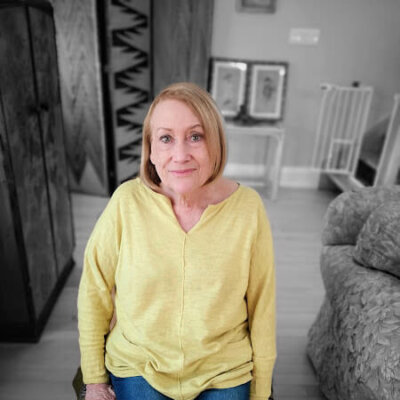How do you tell a mother needing life-saving cancer treatment that you can’t help her because the funding simply isn’t there? Or the young man who can no longer work to support himself? What about the university student who has to put her education on hold to cover medical expenses? Or the grandparents who repeatedly hit credit card limits while trying to travel for essential cancer treatment out of province?
These are heartbreaking choices that no one living with cancer should have to face. Yet these stories are real — and they are Canadian stories.
These are just some of the scenarios our non-profit cancer organization has to navigate regularly, stepping in to cover cancer-related costs when our healthcare system fails cancer patients — but also turning many away when our funding runs dry.
For nearly two decades, Save Your Skin Foundation (SYSF) has spent more than $500,000 ensuring patients can access the diagnoses and treatments they need — something our healthcare system should be providing. We are not the only cancer organization doing this important work. But even collectively, the many cancer non-profit organizations and charities across the country can only provide a drop in the bucket.
Recently, the Canadian Cancer Society published a special report on the economic impact of cancer in Canada. To the surprise of few involved in cancer care, one of the key findings is that approximately $7.5% billion — amounting to 20 per cent of all cancer care — is paid for out-of-pocket directly by people with cancers and their caregivers; the other 80 per cent is paid by the Canadian healthcare system.
How can this happen in a ‘universal’ health system?
It happens because our government health and social care systems do not cover, or fully cover, many cancer care costs, including some essential prescription drugs and innovative therapies, home care, homemaking services, travel related expenses to receive treatments (often in another province), vitamins and supplements. Not to mention the essentials for living, such as food and accommodations for themselves and their families, when are no longer well enough to work for an extended period of time.
In other words, in Canada, people living with cancer cannot get the care they need to live unless they are wealthy or can raise funds elsewhere. Cancer patients rarely learn this harsh truth until they are smack up against a need for treatments — which is often far too late to do much.
So, what do many cancer patients in Canada do? They often sell everything, fundraise, do without treatments or accept whatever treatment is accessible even if it is not the one the doctor thinks is optimal for the survival of that patient. This is aptly referred to as ‘financial toxicity.’
Some are also able to turn to non-governmental patient groups that represent cancer patients for help. Our organization is a national not-for-profit group mainly supporting melanoma and skin cancer patients; since our inception 10 years ago, we have paid for some of these related cancer needs to the extent money will allow.
It is a disgrace when a country like Canada expects small patient groups like ours to pick up the slack for significant cracks in our publicly funded healthcare system.
Why are non-profits forced to bear the financial burden for a healthcare system that’s supposed to be universal (funded from our tax dollars) and comprehensive?
If our governments stepped up and covered essential cancer care costs, as they should, then organizations like ours could spend our limited funds on supporting people through their cancer experience instead and put more money into prevention and screening efforts.
It’s time our health systems approached cancer care differently. It’s time we move to a ‘values based’ health system where the budget established for the treatment of a disease is not determined by siloes (e.g., so much for drugs, so much for doctors, so much for hospitals). Instead, we should analyze the cost to ensure a good health outcome for a particular disease and ensure no one goes out-of-pocket for essential care.
This problem is not going away — in fact, it is only going to increase. By 2028, cancer rates will rise in our country to around 1.5 million people living with cancer. Maybe it will be someone you love. Everyone deserves to have all their cancer care needs covered by our publicly funded health system.
Photo courtesy of Michael Ignatieff, CC BY 2.0 , via Wikimedia Commons





